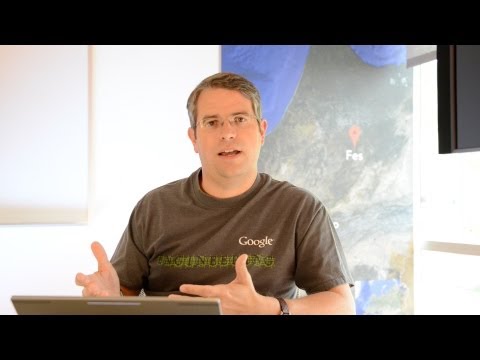Links or content: which is more important for Google? Translation of Matt Cutts video responses (Part I)
- Transfer

Today we have prepared a translation of a small selection of videos from the official Google Blog video tools for Webmasters. These are answers to users' questions, which sounded like the official position of the search engine in the current, 2014 and was voiced at that time by Matt Cutts (who left this post a little later). Questions are about ranking and its links to links. Users, like us, are interested in how relevant links are and what, in addition to links, can affect the ranking of pages. The text of the translation and comments on it were provided by the analytical department of ALTWeb Group and the project team SERPClick , a tool for working with behavioral factors to improve ranking.
How is content ranked if it doesn’t have many links [from external sites]?
You and I already got acquainted with the next report of Yandex in our blog, which was devoted to the topic of indexing new pages. What are the chances that your new page will be indexed and noticed before others? During the study of the report, we came to the conclusion that the weight of the domain will be important factors, as well as data directly from the browser toolbar - the first visits. After the page is noticed, it will queue for indexing and the question is - what place will it take in this queue? - will be solved by predicting both the popularity of this page and the likely decline of this popularity. First you need to choose the page that is relevant right now. This report was framed as a separate study, here we are dealing with the question of users roughly speaking in the "support" of Google.

Matt avoids complex constructions and tries to explain everything as simply and on fingers as possible. In short, according to Matt, for a new page that has not yet been linked, the deciding factor for its ranking will be the quality of the content, as well as the query itself, on which this page will be searched. According to him, if the request is quite rare, then you will have to show on it exactly the page that answers it.
We can conclude that the links are relevant and the desire to get them to a new page is very justified. However, in addition to working on links, you can add behavioral factors that can work as a trigger for a search engine: most often, when saying “content quality”, search engine representatives directly or indirectly confirm the idea that this quality is expressed in the number of visits, the length of the session, and the absence return to search for the same query. We already spoke about this earlier .
Text video:
Today's question came from India. Ashish asks: “How will Google evaluate the quality of content if there are no links leading to the post [from other sites]? This is a good question. In principle, this sends us back to the period when search engines have not yet begun ranking based on links. In this case, you have to judge based on the text on the page itself.
And here Google has enough opportunities. The first time we see the [keyword] word on the page, we take this into account. Having met him again, we pay attention to him again, but this is not a decisive moment. After a while, we say [to ourselves] “And perhaps we have already seen this [key] word. Maybe this page is on this topic. But repeating the keyword again and again will not help you very much. And at some point [if you go too far with the keywords], we can regard this as “over-optimization” and then the page is ranked worse, not as good as if you use a moderate number of references to a word in one text.
So we have other ways [to rank the page if there are no links leading to it from other sites]. Theoretically, we, for example, may ask ourselves: is a new page located on a domain with a good reputation?
There are various ways to determine the quality of content. But in principle, if a user types in some rare phrase and there are no other pages on the network with this phrase, and even if there are not many links to this page, nevertheless, this page will be shown in the output, because we can assume that it is relevant. It can reflect what the user is looking for. Therefore, it can be difficult, but from this point of view, we seem to take a step back and rely only on the quality of the content, which is determined by the text itself, the page itself.
Will links ever lose their relevance for ranking?
No and no again - we are in a hurry to answer, and these words are also confirmed in Matt's answer to this question. Links still remain a decisive factor in the ranking of the entire domain as a whole, in determining the degree of its authority and importance. However, in the light of new algorithms, user behavior with respect to content is again coming to the fore. Here, Matt gets into a lengthy and rather lyrical explanation of how Google would like to be like a supercomputer from Star Trek.
Honestly, such an explanation, which is based on UX in the search, does not give an answer to the question of what exactly should we do to “negotiate” with the supercomputer. In this case, referring to behavioral factors, we can talk about link enhancement using user transitions , as well as working withbehavioral factors , which together enable the search engine to evaluate on the basis of its own logs the most important parameters of the user’s reaction to your content: the user found you in the search, went to you and didn’t return (go from the search, time on the page, no return for the same request) .
Video text:
Today’s question came from Leah from New York and it sounds like this: “Google changed the search engine market in the 90s when it began to rank sites by the number of links leading to them, instead of evaluating only the content as others did search engines. Algorithm updates such as Pandy and Penguin have shown a shift in focus back to content. Does this mean that links will no longer be needed? ”
Well, I think links will continue to be relevant for many, many years. Of course, it is inevitable that we are trying to understand whether the expert user [in some area] will decide on the given [proposed to him] page how much it satisfies his needs. And sometimes backlinks help you understand this.
It is also useful to know the reputation of a given domain or page. Although in most cases, people care about the quality of the content on the specific page they came to.

I think that over time, links will lose some importance. If you could accurately determine, for example, Danny Salivan (editor-in-chief of Search Engine Land - approx. Transl.) Wrote this article or Vanessa Fox (optimizer, worked in Google Webmaster Tools in 2005-2007) wrote another article - something like that spirit, that would help us understand. That is, we have an expert [who created the content of the page], an expert in a specific area. In case we don’t know who the author of the content is, Google begins to understand better and better what is written there.

Therefore, one of the rather extensive issues that we plan to deal with in the coming months is an attempt to understand how to do something similar to a super computer from Star Trek, this is an interactive search. This is the type of search where you can talk with the machine. And she will be able to understand, that is, you are not just using keywords. So that you can understand what someone is saying, for example, like [in the question] “how tall Justin Bieber is” and then “when he was born”, and for this you need to understand what is being discussed. It's about Justin Bieber.
Here, to do this well, we need to better understand natural speech. And I think, as it’s getting better for us to understand who wrote what, what is the true meaning of the text, then, inevitably, less attention will be given to external links.
I would expect that in the coming years we will continue to rely on links in order to determine the basic reputation of the pages and the sites themselves.
Only registered users can participate in the survey. Please come in.
Do you participate in the hangouts of Google Webmaster Tools?
- 18.1% Yes, I’m participating. 2
- 36.3% No, I do not participate. 4
- 36.3% I would like, but the language barrier is in the way. 4
- 9% Neither yes nor no, I have my own opinion. 1
